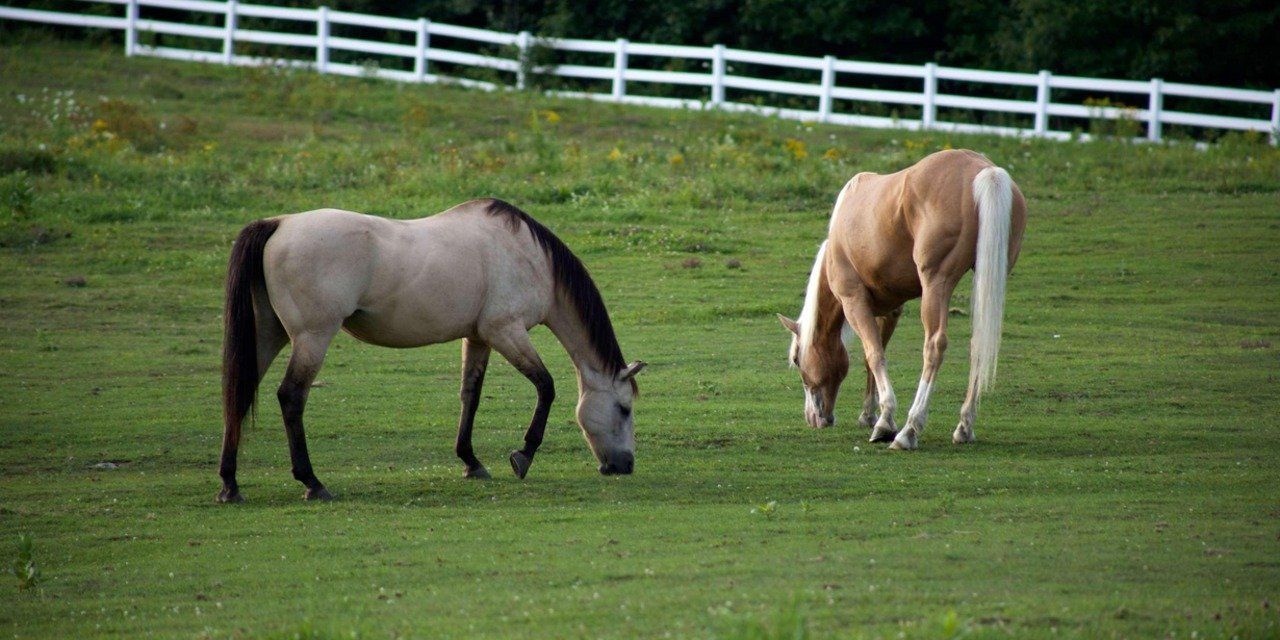Colic – what are myths and what are true?
The symptoms of colic are impossible to err – the horse tries to lie down, roll around, look at the belly, scrape in the ground and maybe even flee.
These are clear signs that the horse has pain in the abdominal region, and of course always have to act responsibly and contact the veterinarian. Colic is a collective term for diseases of the stomach or intestinal system of the horse, and here we try to look more closely at the swelling and the truth about the disease.
15 myths
Horses must not roll
– Of course, a horse with colic must roll, explains Kathrin Rasch, head of the horse clinic Duisburg.
– When the horse rolls, it can even do well, as it causes the gases in the digestive tract to move and escape. However, this is only the case when we are dealing with lighter forms of colic such as convulsive or mild constipation colic.
When the horse manages again, everything is fine
– No, that is not the case, says the veterinarian.
– There is so much space in the rectum that the horse can easily fertilize four to five times, even though the colic is not over.
Trailer driving helps
– Yes, a round of trailer driving can help, says Rasch.
– The horse connects the trailer with exciting situations. It can be a drive to rallies, and that tension can get your gut activity stimulated again.
Prohibited drinking
The myth that horses are not allowed to drink when they have colic is difficult to defeat.
– If the horse has convulsions or constipation, it is very important that the horse drinks, Rasch states. In a bad case of colic or intestinal perforation, however, the horse feels so bad that it will not drink.
Crib bites get colic more often
– It has not been proven, says Rasch.
– We only know that the esophagus is bigger and smoother than horses that are not cribs. In addition, the stomach of the crib bites may also be more irritated.
– A lot of the air they suck in, they let out right away. That they should suffer more from colic is a myth.
“Colic weather”
According to Rasch, horses are more often plagued by colic in windy weather, or when there are large fluctuations in temperature.
– The wind can make horses nervous. It can cause them stress, which can cause colic.
The horse’s stomach is silent when it has colic
The veterinarian explains that if it is a severe case of colic, it can actually be impossible to hear sounds from the stomach.
– Then your horses must have immediate treatment. In milder forms of colic, sounds from the stomach can easily occur.
Sand colic
– There is sand colic, says the vet.
– The sand accumulates in the anterior part of the colon and constipation occurs. This is often seen in horses walking on sand paddocks or in paddocks where the grass is bitten down.
If the horses start to get bored, then they may well find themselves eating sand. Sand colic can develop over several months, and often the sand can only be removed with surgery.
The horse must be kept in motion
– Movement is extremely important for the horse if it is affected by colic, says the head of the equine clinic.
– You can pull the horse or lung it in strides. Even better is if you can get the horse to trot at a light pace for a few minutes. The movement stimulates intestinal activity. Milder cases of colic can thus resolve.
Herbal schnapps helps
– The effect is zero, it sounds from Rasch.
– The horse’s digestive system is completely different than in humans. And if the cause of the colic comes from the back of the horse’s colon, the schnapps will never get there.
Mash stimulates digestion
This myth can actually have few serious consequences for sick horses. If the horse is suffering from acute colic, then under no circumstances should it be fed.
– No feed, bedding must be removed and at best it must have a muzzle on, says the advice from the vet.
– If the horse has constipation, it must not eat. Some horses are so greedy that they continue to eat despite the pain. This can lead to an overload of the bowel.
Colic occasionally is normal
Horses do not live as they did in the past. That’s a fact. Therefore, colic in horses is not a rarity.
– However, one should not always conclude that it is because the horses are on the box that they develop colic. In very busy stables, sensitive horses get colic because they are exposed to stress. Their rank order is constantly challenged by new horses, or other horses block the feeding sites. These stressors can be the cause of colic.
Too much bedding is the cause
– This is only the case if the horse eats too much straw when it is not getting exercise or consuming enough fluids at the same time, she says.
– In winter, it can be beneficial to heat the drinking water a little, as the horse does not like ice cold water. If the horse drinks plenty, then straw should not be a problem.
Heat helps
– With heat you can create a comfortable environment for the horse, which can cause it to relax. It can help relieve mild forms of colic.
Oil makes it slip
It is unfortunately not so – at least not if you give the sick horse for example. flaxseed oil.
– In case of constipation, the veterinarian usually gives the horse paraffin oils which have a laxative effect. In general, feed oils are good for digestion and metabolism, but they have no effect in acute situations.
